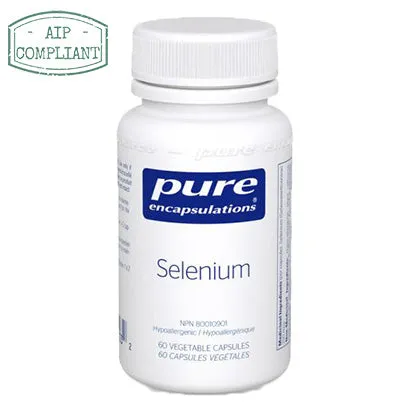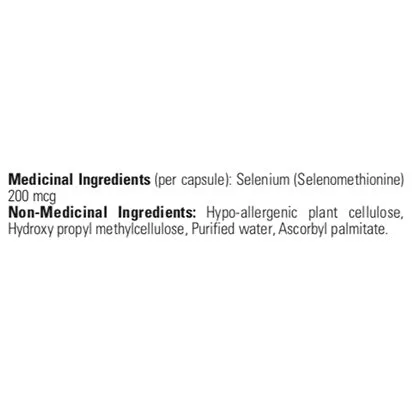Research suggests that selenium supplementation for people with Hashimoto’s is associated with a reduction in TPO antibody levels, improved thyroid ultrasound features, and improved quality of life. Thyroid antibodies in people with Hashimoto’s have been shown to be reduced by 40 percent in three to six months with therapeutic doses of selenium.
Studies suggest that low selenium status is associated with depressed mood, anxiety, and cognitive decline.
Selenium is a natural antioxidant that decreases oxidative damage and delays the oxidation of polyunsaturated fatty acids as a component of selenoprotein P and selenoenzymes, such as glutathione peroxidase. Selenium protects immune cells from the over-production of reactive oxygen species that can occur during normal immune responses.
The highest levels of selenium are present in the thyroid gland, where it removes reactive oxygen species produced during the synthesis of thyroid hormones. It also plays a direct role in thyroid hormone synthesis.
Pure Encapsulation’s Selenium provides selenomethionine, an organic, bioavailable form of selenium.
REFERENCES:
- Mazokopakis EE, Papadakis JA, Papadomanolaki MG, et al. Effects of 12 months treatment with L-selenomethionine on serum anti-TPO Levels in patients with Hashimoto’s thyroiditis. Thyroid. 2007 Jul;17(7):609-12.
- Negro R. Selenium and thyroid autoimmunity. Biologics : Targets & Therapy. 2008;2(2):265-273.
- Conner T. New study shows strong link between selenium levels and depression. Medical Press. Published November 6, 2014. Accessed September 3, 2018.
- Benton D, Cook R. The impact of selenium supplementation on mood. Biological psychiatry. 1991;29(11):1092-1098.













